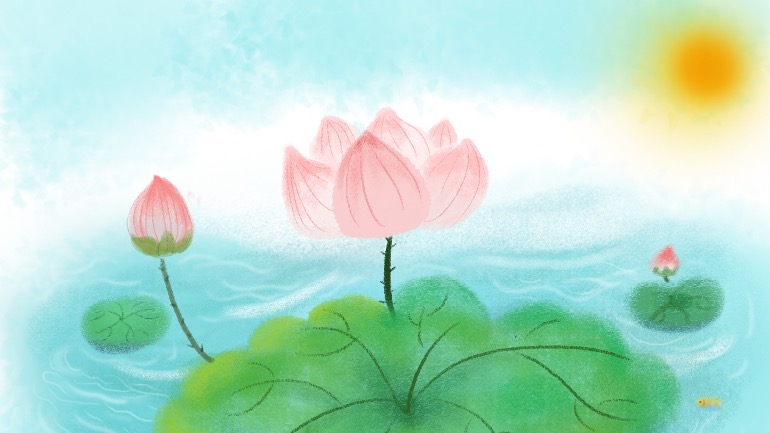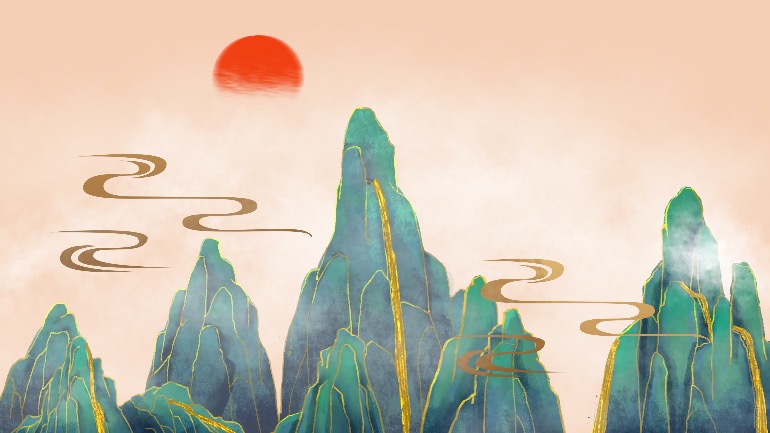In addition, dedication should correspond with motivation. If our motivation is to cultivate virtue for the sake of all sentient beings, our dedication should be for them as well. The two should not be inconsistent. It would not make any sense to arouse bodhicitta first and subsequently dedicate merit for our own benefit. According to the viewpoints of Mahayana Buddhism, we can dedicate merit neither for the worldly blessings of this life— our own health or prosperity, nor the attainment of the state of sravaka or pratyekabuddha, but enlightenment or the attainment of Buddhahood, the most sublime of all dedications. To dedicate as such, the seeds of virtue can never be depleted; the fruits born thereof, though ripened time after time, will never end. As the merit has been dedicated for the attainment of enlightenment, it will not disappear before then.
WORDS OF WISDOM
In summary, the first requisite of generating bodhicitta is the aspiration to deliver sentient beings from samsara; the second, the determination to attain Buddhahood in order to free sentient beings from the suffering of samsara.
In his explanation of the Ornament of Clear Realization , Patrul Rinpoche raised a crucial point. He said, “The goal of the bodhisattva is not to attain Buddhahood.” If that was not the goal, would the practitioners of Mahayana have any goal at all?
What he really meant is that if the aspiration to attain Buddhahood was simply due to one’s admiration for the Buddha’s greatness, his pure innocence and fulfillment of all virtues, yet no concerns for liberation of other sentient beings, it would not be in accordance with the doctrine of Mahayana. In other words, if liberation of others is out of the consideration, no matter how hard one works to keep the vow of attaining Buddhahood, those efforts will not be counted as Mahayana practice.
What are the three supreme methods? They are: 1. motivation; 2. actual practice with a mind free of clinging and concepts; 3. dedication.
Shakyamuni Buddha also began his path as an ordinary person and eventually attained enlightenment. He was not born a Buddha. In the biography of Milarepa, one disciple said to Milarepa, “Master, you must be an emanation of Vajrapani or some Buddha.” Milarepa immediately retorted, “I know you want to show your respect to me by saying that. Yet it is a serious defamation to the Dharma because it indicates that you don’t believe that the Dharma can transform an ordinary person into someone like me.” Therefore, the issue is not whether one has the capability but the determination to set about obtaining that capability from now on.
With bodhicitta, many problems related to practice could be easily solved since bodhicitta has within itself the incredible capacity for accumulating merit, forgiving and purifying evil karma and so forth. Thus, bodhicitta is regarded as the indispensable universal key for the entrance of Mahayana Buddhism.
First, as a Mahayana practitioner, when aspiring or dedicating, one should begin with the vow: “May I, in the many lives from now until enlightenment, never harm the life or even a single hair of another being, not even for the needs of my own body or life.” Naturally, one must make good one’s promise. If, for the time being, one cannot fully keep one’s words, at the least one should vow this way: “May I, in the many lives from now until enlightenment, never intentionally harm the life of another being, even for the needs of my own body or life.” Failing this, any more talks on practicing Mahayana would be pointless. Moreover, we should encourage ourselves to make the promise of not harming other beings at all costs as quickly as we can and make good that promise, which ought to be the goal of our practice at the moment as well.
Patrul Rinpoche had said that absent genuine renunciation and bodhicitta, if one were to do a nine-year retreat and cut off all associations with others to practice the Great Perfection full-time, one would not even sow the seed of liberation, let alone other achievements. How terrible not having generated renunciation and bodhicitta! What use is there for other practices when not even the Great Perfection can sow the seed of liberation? Therefore, making the choice of motivation should never be taken lightly.
As you all know, the achievement of a trained athlete far exceeds that of an untrained person. Through training, however, the untrained can achieve the same result. Having bodhicitta or not is a matter of constant practice, not an unchangeable condition. If we do not start practicing now to generate bodhicitta, we will forever remain selfish and never become Mahayana practitioners. However, as we continue practicing for a period of time, say, three months, half a year, or a year, bodhicitta will certainly be developed to some extent.











